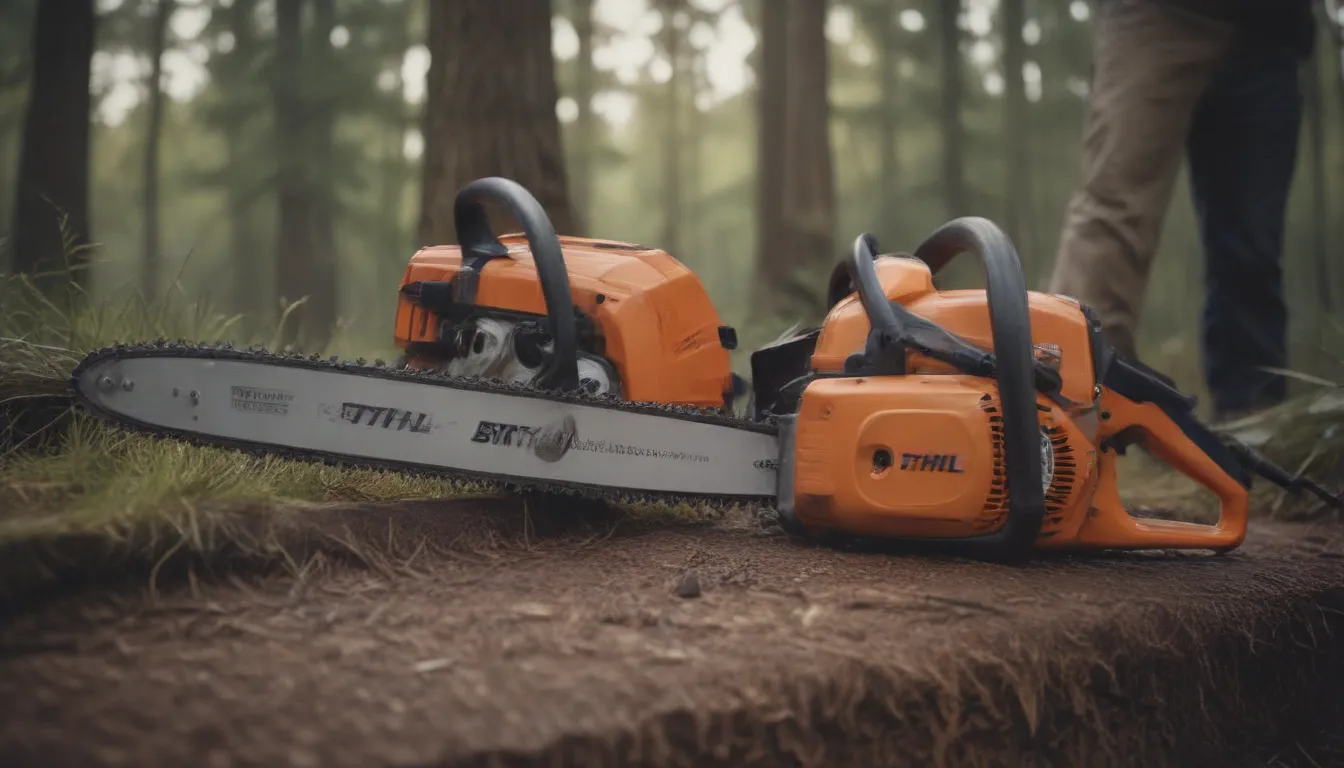The Ultimate Guide: Stihl vs. Husqvarna Chainsaws

If you’re in the market for a new chainsaw to tackle your yard work or tree-cutting needs, chances are you’ve come across the two powerhouse brands, Stihl and Husqvarna. Both brands have earned a reputation for delivering high-quality, reliable chainsaws that meet the needs of professionals and homeowners alike. But deciding between a Stihl vs. Husqvarna chainsaw can be a tough choice, as each brand has its own set of pros and cons compared to their competitors.
In this comprehensive guide, we will break down the key differences between Stihl and Husqvarna chainsaws, so you can make an informed decision based on your specific needs and preferences. But before we dive into the comparison, it’s important to note that chainsaw safety should always be a top priority. According to the CDC, approximately 36,000 chainsaw-related injuries requiring emergency care occur annually. So, be sure to use extreme caution and follow all safety procedures when operating a chainsaw.
Brand History and Overview
Let’s start by taking a closer look at the brands themselves. Stihl, founded in 1926 in Germany, has a long-standing reputation for producing top-of-the-line chainsaws. The company’s founder, Andreas Stihl, revolutionized the chainsaw industry by inventing the single-person powered chainsaw, replacing the cumbersome two-man saws previously used by professionals.
On the other hand, Husqvarna, established in 1689 in Sweden as a musket manufacturer, transitioned into the power tool industry in 1959. Since then, they have become one of the world’s largest and oldest manufacturers of power tools, including chainsaws. Both Stihl and Husqvarna have a rich history of delivering quality products that cater to the needs of their diverse customer base.
Stihl vs. Husqvarna: A Head-to-Head Comparison
Now, let’s compare the key features and aspects of Stihl and Husqvarna chainsaws to help you make an informed decision:
Torque
- Stihl: Known for better low-end torque for tough cutting
- Husqvarna: Offers more powerful high-end torque for improved cutting speed
When it comes to torque, Stihl chainsaws excel at cutting through tough wood and knots, thanks to their powerful low-end torque. On the other hand, Husqvarna chainsaws boast a stronger high-end torque for faster and more efficient cutting. Depending on your cutting needs, you can choose the brand that best suits your requirements.
Weight
- Stihl: Lightweight for less user fatigue
- Husqvarna: Larger fuel tanks result in increased weight
Stihl chainsaws are known for their lightweight design, making them ideal for users who prefer a less cumbersome tool. On the other hand, Husqvarna chainsaws, with larger fuel tanks, may be heavier when fully fueled, leading to increased user fatigue, especially during prolonged use.
Fuel Capacity
- Stihl: Smaller fuel capacity, requires more frequent refueling
- Husqvarna: Larger fuel tanks, ideal for longer cutting sessions
While a larger fuel tank may seem advantageous for longer cutting sessions, it can also result in added weight and user fatigue. Conversely, a smaller fuel capacity may require more frequent refueling but is suitable for smaller properties and users who don’t mind occasional stops for fueling.
Fuel Efficiency and Emissions
- Stihl: Higher emissions and fuel consumption
- Husqvarna: Better fuel efficiency and reduced emissions
Husqvarna chainsaws have the edge when it comes to fuel efficiency and emissions, making them a preferred choice for environmentally conscious users. The improved fuel efficiency not only reduces emissions but also lowers the overall fuel costs.
Maintenance
- Stihl: Requires less routine maintenance
- Husqvarna: May require more frequent maintenance checks
Maintenance is crucial for ensuring the longevity and performance of your chainsaw. Stihl chainsaws are known for their superior engineering, requiring less routine maintenance compared to Husqvarna chainsaws. However, regular maintenance checks are essential for both brands to prevent any potential issues during operation.
Price and Availability
- Stihl: Lower prices but limited availability through specific retailers
- Husqvarna: Higher prices but widely available from various retailers
Stihl’s private ownership allows them to control prices and availability through select dealers, ensuring competitive pricing. However, availability may be limited, especially for online purchases. In contrast, Husqvarna chainsaws are readily available from online and big-box retailers but may come at a higher price point.
Which Chainsaw Should You Choose?
Ultimately, the decision between Stihl and Husqvarna chainsaws comes down to your specific needs and preferences. If you prioritize power, cutting efficiency, and environmental considerations, a Husqvarna chainsaw may be the right choice for you. On the other hand, if lightweight design, lower maintenance, and affordability are your top priorities, a Stihl chainsaw might be the better option.
Remember, chainsaw safety should always be your top priority. Be sure to familiarize yourself with the proper operation and safety procedures before using your chainsaw to prevent any potential injuries.
In conclusion, both Stihl and Husqvarna are reputable brands with a long history of delivering high-quality chainsaws. By considering the key differences outlined in this guide, you can make an informed decision that aligns with your specific needs and preferences. Happy sawing!





